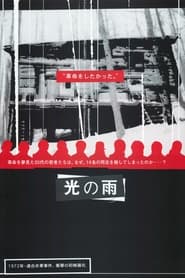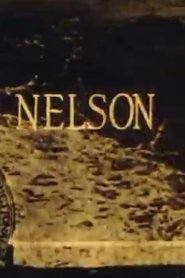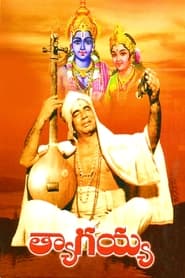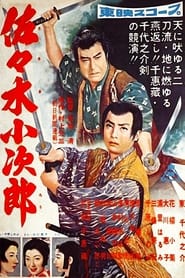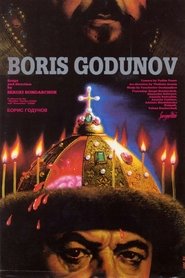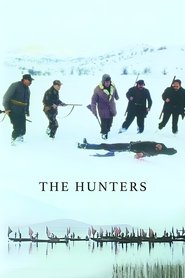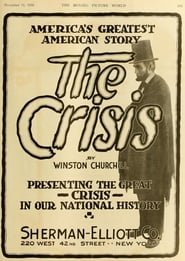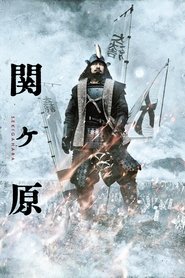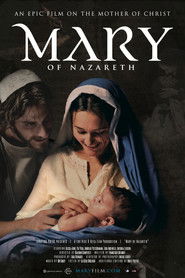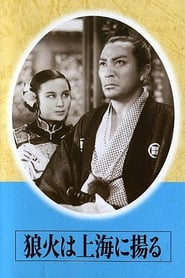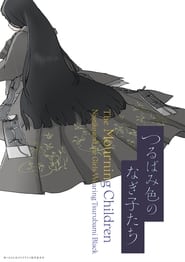Popular History Movies on Tub Tv - Page 168
-
Rain of Light
2001
Rain of Light
2001
star 5.2This documentary-style film recreates the infamous Asama Sanso Incident of 1972 wherein an extreme faction of the Students Allied Red Army holed themselves up in a mountainous cabin in the dead of winter. By the time the police finally caught up with them, it was discovered that they had murderously turned upon themselves in a bizarre extension of their radical philosophy. This event virtually marked the end of the Student Revolution. -
Nelson
1926
Nelson
1926
star 1Recounts some highlights in the career of Admiral Nelson, including his battles with the French fleet under Napoleon, and his dalliances with Lady Hamilton. -
Thyagayya
1981
-
Jim Morrison: The End
2021
star 7.4Paris, Rue Beautreillis, July 3, 1971. The corpse of rock star Jim Morrison is found in a bathtub, in the apartment of his girlfriend Pamela Courson. The chronicle of the last months of the life of the poet, singer and charismatic leader of the American band The Doors, one of the most influential in the history of rock. -
Sasaki Kojiro
1957
Sasaki Kojiro
1957
star 6Ronin Sasaki Kojiro pursues his ultimate goal of becoming a master swordsman. Along the way he encounters another great swordsman, Miyamoto Musashi. -
Shanghai Rhapsody
1984
Shanghai Rhapsody
1984
star 7Set in the 1930s in the international city of Shanghai, the film follows the extravagant life and times of a group of jazz musicians, living from one advance paycheck to the next, as the country teeters over the brink into the Second Sino-Japanese War. -
Boris Godunov
1986
Boris Godunov
1986
star 5.6Praised for its fine photography and production design if not its narrative, Sergei Bondarchuk directed this adaptation of the tale by Alexander Pushkin. Boris Godunov came to the Czarist throne at the end of the 16th century, after the original heir to Ivan the Terrible had died. At first, things went well for Godunov (played by Bondarchuk), but when the Russian people began to believe he had killed Ivan the Terrible's son in order to gain the throne, an alliance sprang up against the new Czar. Events continued to spin out of control as a young monk was presented as the son Godunov had supposedly killed. Now he was openly accused of failing an assassination attempt, which seems to be even worse than succeeding. In addition to these woes, Boris Godunov began to suffer serious health problems. So much for the joys of kingship. -
Electra
1962
Electra
1962
star 7Living in exile after the death of their father, the grown children of a murdered and usurped king converge to exact eye-for-an-eye revenge. -
Great King Sejo
1970
Great King Sejo
1970
-
Samurai Justice: A Duel at Takadanobara
2005
Edo is rocked by the news that a duel to the death is to be held at Takadanobaba, the famed site of a bloody revenge fought by Nakayama Yasubei, who late married into the Ako clan where he was one of the 47 ronin who took vengeance against the vile Lord Kira. This hallowed spot is to host a match between two of the finest swordsmen in Edo. Each is backed by a high ranking direct vassal of the shogun, who had bet their family heirlooms on the outcome. The loser was to commit seppuku and have his clan disbanded. Meanwhile a band of brigands are placing their bets on the fencer who had earlier killed their leader. Can retired master swordsman Akiyama Kohei keep this from becoming a major disaster? -
The Hunters
1977
The Hunters
1977
star 7.7During a hunting party on New Year's Eve 1976, five representatives of the bourgeoisie encounter with their companion the body of a partisan from the Civil War of the late forties. What they are most confused about is the fact that the corpse that lies at their feet is still bleeding… -
The Crisis
1916
The Crisis
1916
star 5.3Stephen Brice, a young lawyer in Civil War-era St. Louis, falls in love with Virginia Carvel, the daughter of his benefactor. But she is loyal to the South and Brice is committed to Lincoln's cause. In the course of the war, their convictions separate them, and Virginia becomes engaged to her cousin Clarence Colfax, a Confederate officer. Brice becomes an officer under General Sherman, and eventually finds himself faced with the captured Colfax, facing execution for spying. Brice must decide whether or not to intercede in his rival's behalf. -
The Communist
1958
The Communist
1958
star 6A young ordinary communist, Vasiliy Gubanov, was among many who took part in the construction of the most important facility for the young republic, the power plant. He did his job in a way that was beyond human ability. He could love, too, with a passion and a passion for self, but his life was cut short very early. -
Sekigahara
2017
Sekigahara
2017
star 7The background to and depiction of a watershed battle in Japanese history, at Sekigahara in 1600, when Tokugawa Ieyasu's Army of the East defeated the Army of the West of Ishida Mitsunari. The story includes the intrigues and shifting loyalties of the various retainers, family members, and samurai. -
Mary of Nazareth
2012
Mary of Nazareth
2012
star 7The film begins with the Annunciation: Mary, a young Galilean, virginal conceived the Messiah, the Son of God. Her husband Joseph, a humble carpenter, decided to stay by his side throughout. When Caesar Augustus ordered the Jews to register people, the couple embarks on a journey to Bethlehem, where Jesus was born. Meanwhile, Maria Magdalena, a young woman from the same town that Mary, turns away from God and placed in the palace of King Herod, Herodias where convinces her to lose her innocence in the arms of the king's son. -
Signal Fires of Shanghai
1944
star 8.8During the Taiping Rebellion of the mid-19th century, anti-Qing (Manchu) Chinese forces led by Taiping commander Li Xiucheng march on Shanghai. Although the Western powers are officially neutral, the British consul in Shanghai sides with the Qing imperial government, and counter to his own government's policy he retains American adventurer Frederick Townsend Ward to raise a mercenary force of foreigners in Shanghai and oppose the Taipings. Ward's force is routed, with heavy casualties, but since many of the casualties are British, the British army soon is drawn in on the side of the Qings. The only support for the Chinese comes from Japanese in Shanghai and anti-imperialist demonstrations in Japan. A family drama plays out against this historical background. After a Chinese home is destroyed by careless British shelling, killing the father and crippling a daughter, the surviving son vows revenge but begins to see that his true friends may be the Japanese. -
The Mourning Children: Nagiko and the Girls Wearing Tsurubami Black
0000
Kyoto during the Heian period (the 10th century) in Japan. Tens of thousands dead, gutters filled with corpses, children abandoned in the mountains, and groups of wild dogs vigilantly watching outside the city. The elegant image of the Heian period has been shown in many literary and artistic works. However, Katabuchi's new work takes us back to Kyoto a thousand years ago, when the city was shrouded in darkness due to repeated epidemics of plague. -
The Hetman's Jewels
1993
The Hetman's Jewels
1993
star 8The film takes place in 1659 when Bohdan Khmelnytsky's son Yuri took power from Hetman Vyhovsky. Supporters of Bohdan Khmelnytsky are trying to help his daughter Olena to save her father's regalia - the symbol of Hetman's power and independence of Ukraine. -
The Notorious Bored Samurai 2
1988
The Satsuma clan conspires with key figures in the shogunate to overthrow the government. However, the head inspector, Naito Yamashiro no Kami, cannot find the sworn statement of rebellion and takes responsibility by ending his own life. This deeply affects Mondonosuke Saotome, who was close to Yamashiro no Kami and who is known for his restless nature. Seeking an audience with Shogun Tsunayoshi to request a view of the sworn statement, Mondonosuke Saotome is granted permission to go to Satsuma. He sets off on this journey accompanied by Sasao Kinai and Yamashiro no Kami's sister, Shizue . However, on the way, they are attacked by a group of mountain monks. Mondonosuke Saotome manages to repel the monks in a brawl but becomes separated from Kinai and Shizue. Afterward, he encounters a mysterious woman named Oren, and with her guidance, he finally arrives in Satsuma. -
Mumu
1973
Mumu
1973
A story set in Tsarist Russia, set in a manor house. The main character is the mute Gerasim, who lives in a touching friendship with his dog Mumu. The dramatic plot is based on the petty intrigues of people from his environment.
 Netflix
Netflix
 Amazon Prime Video
Amazon Prime Video
 Apple iTunes
Apple iTunes
 Apple TV Plus
Apple TV Plus
 Disney Plus
Disney Plus
 Google Play Movies
Google Play Movies
 Paramount Plus
Paramount Plus
 Hulu
Hulu
 HBO Max
HBO Max
 YouTube
YouTube
 fuboTV
fuboTV
 Peacock
Peacock
 Peacock Premium
Peacock Premium
 Amazon Video
Amazon Video
 The Roku Channel
The Roku Channel
 AMC+
AMC+
 Kocowa
Kocowa
 Hoopla
Hoopla
 The CW
The CW
 Vudu
Vudu
 Starz
Starz
 Showtime
Showtime
 PBS
PBS
 Pantaflix
Pantaflix
 FXNow
FXNow
 Tubi TV
Tubi TV
 Kanopy
Kanopy
 Comedy Central
Comedy Central
 Crunchyroll
Crunchyroll
 Microsoft Store
Microsoft Store
 Redbox
Redbox
 Sun Nxt
Sun Nxt
 ABC
ABC
 DIRECTV
DIRECTV
 Crackle
Crackle
 Fandor
Fandor
 Plex
Plex
